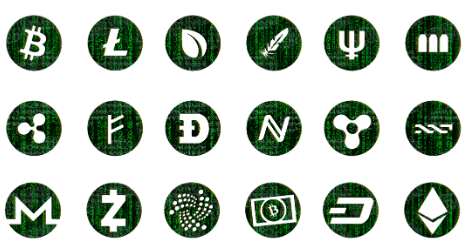At the dawn of Bitcoin, when the very first cryptocurrency exchanges began popping up, many people believed it was a hoax or some sort of strange, large scale prank. The idea of money that was not tethered to anything physical or validated by a government-sanctioned bank seemed anarchic and absurd.
Even today, very few people understand the revolutionary blockchain technology that powers cryptocurrency. However, since digital coins like Bitcoin and Ethereum have gained so much momentum, even those who still view crypto with suspicion will concede that it is here to stay.

As is typically the case with any new, revolutionary technology, the first generation of folks who were exposed to crypto has largely been dubious and wary. But as we approach the ten-year anniversary of the first Bitcoin (note that it’s the eleven-year anniversary of the financial crisis), we’ve seen something that began as a fringe novelty gain traction in almost every country in the world.
If the first ten years of crypto was a slow-burn ascent to general acceptance, the next ten years may well feel like a rocket to the moon. With governments, banks, financial institutions and software gurus all trying to harness the malleable power of blockchain technology, the chances are roughly nil that crypto will fall by the wayside.
In the remainder of this post, we’re going to look at two significant areas of the crypto-ecosystem and how they fit in with the bigger picture, and then spend a moment on emerging areas of interest.
Retail/ Merchant Applications
In a rudimentary sense, digital coins like Bitcoin and Litecoin were designed to facilitate transactions between vendors and customers, as well as basic money transfers. Large companies like Shopify, Expedia and Microsoft are opening up their products and services to those who prefer to deal in Crypto, while many independent businesses were early adopters for a variety of beneficial reasons.
Consumers who learn how to buy cryptocurrency tend to make it a regular part of their shopping experience, as the fees, speed and security of transactions processed through the blockchain are favourable to transactions executed through traditional methods like banking or credit. On a merchant’s end, incorporating crypto into your POS system means dealing less with the bureaucracy of major banks and credit cards and receiving payment through a clean, easy, instant method.
Trading
While early adopters were in a position to make unheard of returns on their initial investments, the crypto gold-rush is still very much still alive and well despite some volatile fluctuations. Innovative money managers have been busy putting together ETFs and merchant banking opportunities to facilitate investments in crypto that goes beyond simply purchasing the actual currency. Crypto evades typical categories of investment, but for those in search of an exciting, potentially life-changing investment opportunities, the crypto frontier is irresistible.

Beyond
As if the world of crypto wasn’t already confusing enough, Ethereum has come along and opened up a whole new way of thinking about the blockchain. Ethereum can be purchased as a traditional digital coin (ether), but this ether can also be used as fuel to power smart contracts and software. In the ten years since Bitcoin’s inception, analysts have looked at the blockchain as a purely financial tool. Ethereum, however, is showing the world that blockchain technology can provide a decentralized, peer-governed venue for contracts and software, suggesting that we’ve only begun to understand the possibilities of what lies ahead.
Whatever the future of crypto may be, it is poised to be one of the most revolutionary, fascinating developments of the 21st century.








Show Comments
Comments are closed.